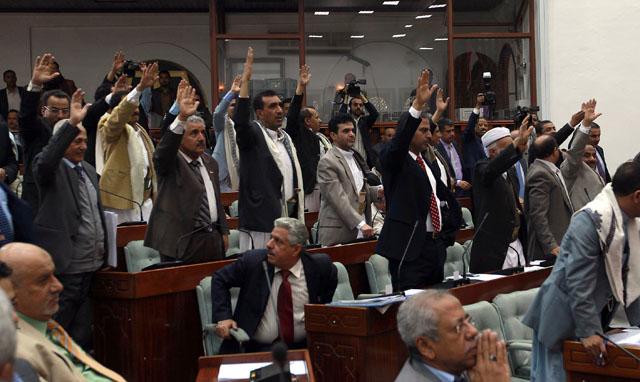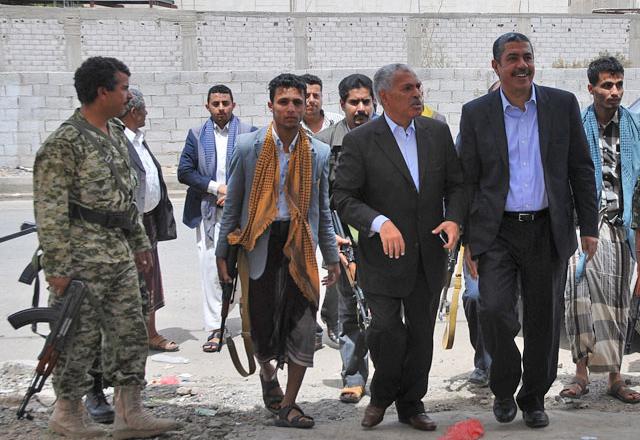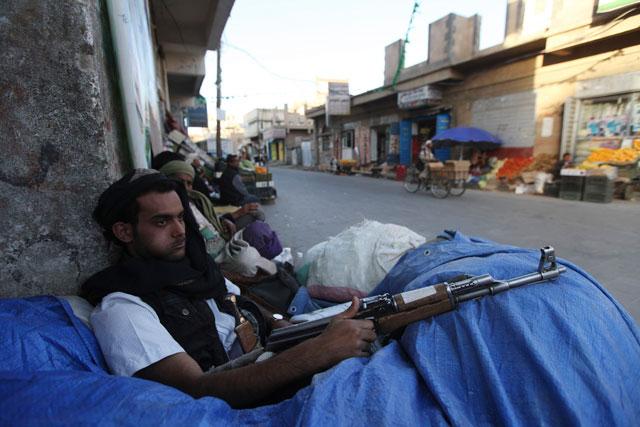You are here
Yemen’s parliament approves new Cabinet
By AP - Dec 18,2014 - Last updated at Dec 18,2014

SANAA — Yemen's parliament on Thursday approved a new government despite months of violence and political wrangling that has shaken the country.
Parliament's approval could ease tensions but it is unlikely to resolve the power struggle between President Abed Rabbo Mansour Hadi and the Shiite Houthi rebels who in September seized control of the capital, Sanaa, and are allied with loyalists of former president, Ali Abdullah Saleh.
Houthis' power grab was met with suicide bombings and deadly attacks, mainly by Sunni rivals from Al Qaeda and allied tribes.
A strong explosion rocked a Houthi-occupied house in the port city of Hodeida on Thursday, killing one and wounding 11, according to a medical official who spoke on condition of anonymity because he was not authorised to speak to media. Al Qaeda claimed responsibility for the attack.
Also, the group said it was behind twin suicide bombings that targeted a Houthi leader south of Sanaa on Tuesday — a day that left 26 people dead, including 16 girls whose school bus was hit.
Al Qaeda denied targeting the school bus and accused the Houthis of firing grenades that struck it.
The Houthis had pressed Hadi to form a new government, which would give them more say in political affairs. Believed to be Iran-backed, the Shiite rebels have become key power brokers since they overran Sanaa.
The 301-seat legislature did not release a tally on Thursday's vote, but more than 200 lawmakers at the session voted by a show of hands and overwhelmingly approved the 36-member government, led by Khaled Bahah.
Wrangling over the new government and the Houthis' military expansion around Sanaa and in other strategic provinces have driven Yemen deeper into turmoil.
Saleh and his loyalists, who form the majority in parliament, have called on the government to explicitly denounce UN sanctions against the former president and two top Houthi leaders. Bahah's government has vowed to respect the sanctions.
Related Articles
Yemeni Prime Minister Khalid Bahah said that he was poised to leave the capital Sanaa on Monday after Shiite militia agreed to free him from two months of house arrest.
Most Yemeni factions have agreed to set up an interim presidential council to manage the country for up to one year, negotiators said on Thursday, in a step to ease a power struggle that forced the president to step down two weeks ago.
Yemen's Houthi movement sacked top managers of the country's second largest port and the main oil company on Wednesday, staff said, in the latest move by the Shiite Muslim group to consolidate its hold on state institutions.













